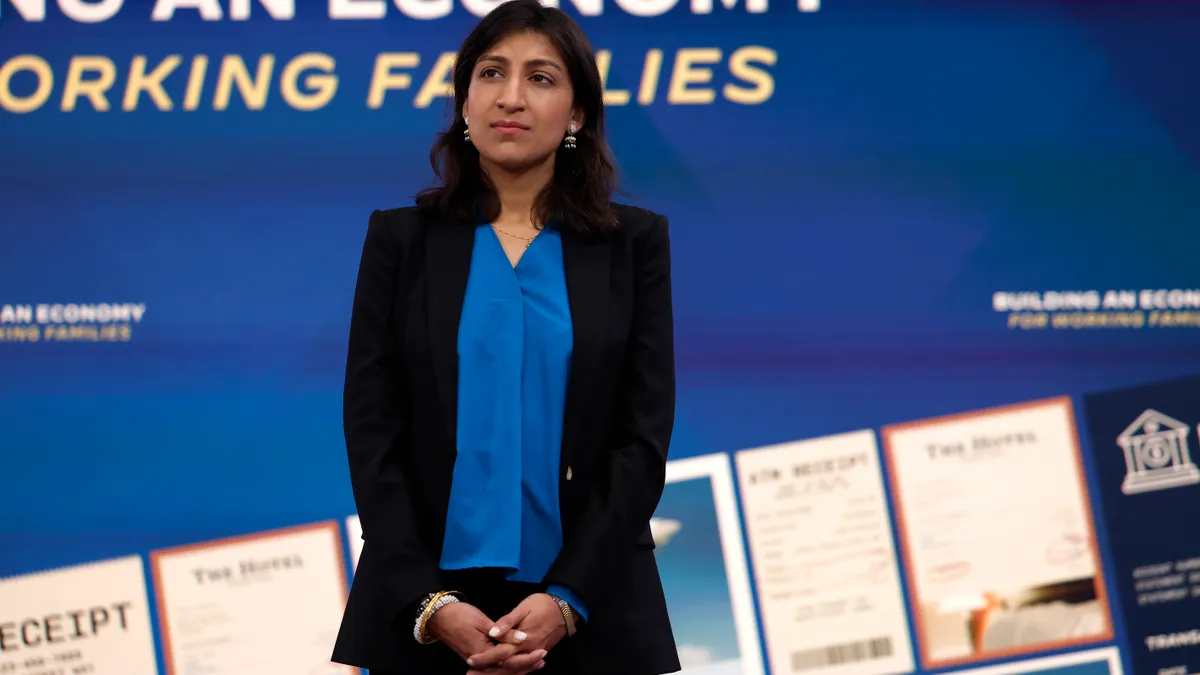Dive Brief:
- The U.S. Department of Justice and Federal Trade Commission blocked a record number of merger transactions last year, highlighting a more volatile regulatory environment for deals, according to a recent report by global law firm Dechert LLP.
- In 2022, DOJ and FTC filed a total of 10 lawsuits to block deals they deemed anti-competitive, the most challenges observed in a single year since Dechert started tracking such data in 2011, according to the study. The 2021 total was six complaints.
- Dechert publishes quarterly and annual data on "significant" U.S. merger investigations at the DOJ and FTC — those resulting in an outcome such as a legal challenge, consent order, or deal termination. In all, 60% of such probes concluded last year resulted in the deal either being blocked or abandoned. This shattered the prior year's record of 37%. One enforcement action that didn’t succeed, though, is Meta’s plan to buy Within, which makes a virtual reality fitness game. The FTC called it anti-competitive, but a judge for U.S. District for the Northern District of California declined the FTC’s request for a preliminary injunction.
Dive Insight:
The report highlights a growing trend of aggressive antitrust enforcement under President Joe Biden.
“What we're seeing now is that there are fewer merger cases being settled and far more instances where the agencies are seeking to block the merger,” James Fishkin, an antitrust partner at Dechert LLP, said in an interview.
The government's record antitrust litigation activity last year included a DOJ suit to stop Penguin Random House from merging with rival book publisher Simon & Schuster. The parties abandoned the $2.2 billion deal after DOJ won the case, which was filed in the U.S. District Court for the District of Columbia.
"When we think a merger may substantially lessen competition, the optimal remedy is to block it," Doha Mekki, a deputy chief in DOJ's Antitrust Division, said at a Jan. 26 conference hosted in Arlington, Va. by George Mason University's Mercatus Center. Too often, antitrust regulators have tried to fix problematic deals through consent decrees rather than blocking them outright, she said.
Antitrust regulators announced eight consent decrees last year, compared with 17 in 2021, a decline of about 53%, Dechert found.
Besides blocking more mergers, regulators are also taking longer to investigate them, according to the study. The average duration of significant investigations rose to 11.8 months in 2022, compared with 11.4 in 2021.
"To ensure the ability to defend their deals through a potential investigation, parties to the average 'significant' deal in the U.S. should plan on at least 12 months for the agencies to investigate their transaction and may want to add on additional time to address the continuing uncertainty at the agencies," the report said. "Parties should also plan for another nine to 10 months if they want to preserve their right to litigate an adverse agency decision."








